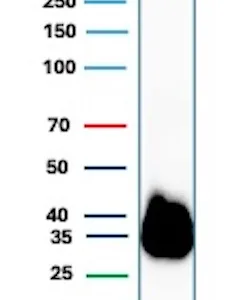Free Shipping in the U.S. for orders over $1000. Shop Now>>

B cells, also known as B lymphocytes, are a type of white blood cell that play a crucial role in the immune system response. They are an essential component of the adaptive immune response, responsible for producing antibodies (immunoglobulins) and serving as a critical defense mechanism against infections. B cells are a diverse group of cells that can recognize and respond to various pathogens, including bacteria, viruses, and other foreign substances.
B cell identification and/or quantification, using protein biomarkers, is vital for diagnosing and monitoring various medical conditions, including autoimmune diseases, immunodeficiency disorders, and certain types of cancers, like leukemia and lymphoma. Some B cell biomarkers yield prognostic information about disease outcomes and predict cancer aggressiveness, guiding treatment decisions. In the laboratory or the clinic, monitoring B cells with biomarkers facilitates vaccine and immunotherapy efficacy studies and elucidates the underlying mechanisms of various diseases.
The choice of which B cell biomarkers to measure depends on the specific goals of the analysis and the research context. NeoBiotechnologies offers a variety of validated antibodies targeting B cell protein biomarkers that are guaranteed to yield accurate and reliable results. A list of our specific and sensitive antibodies and their intended applications is shown in the table below.
Showing the single result

Showing the single result

